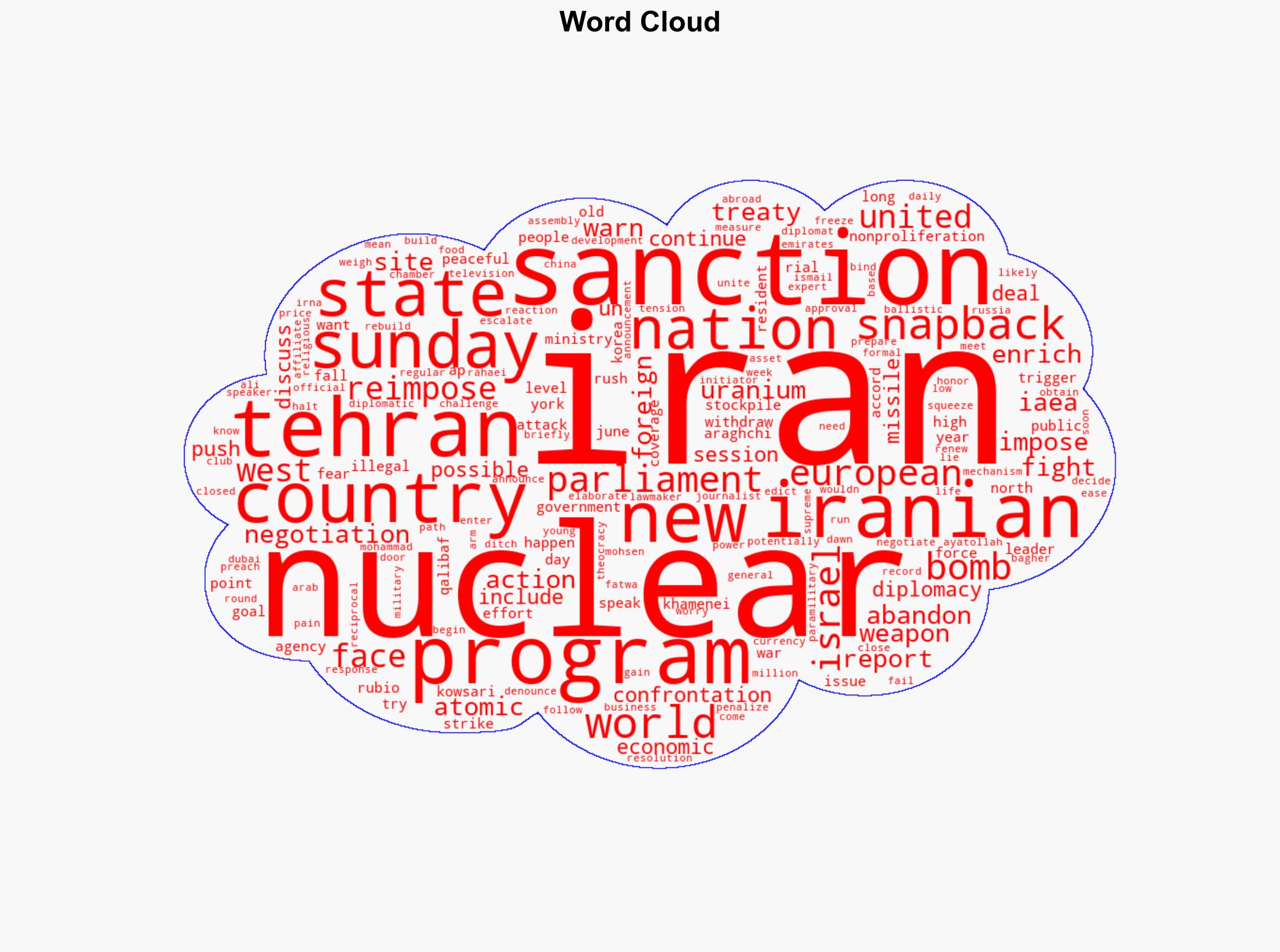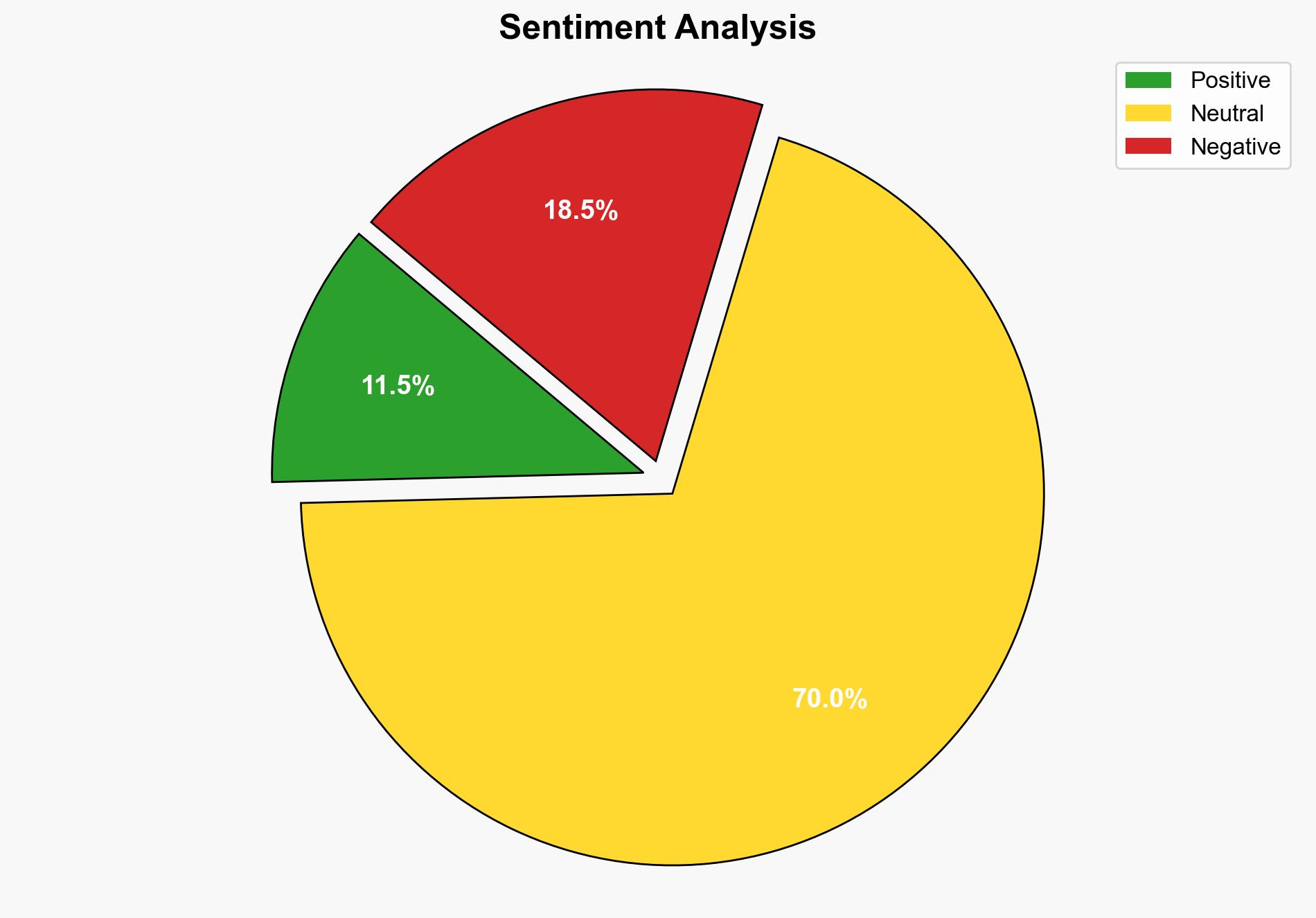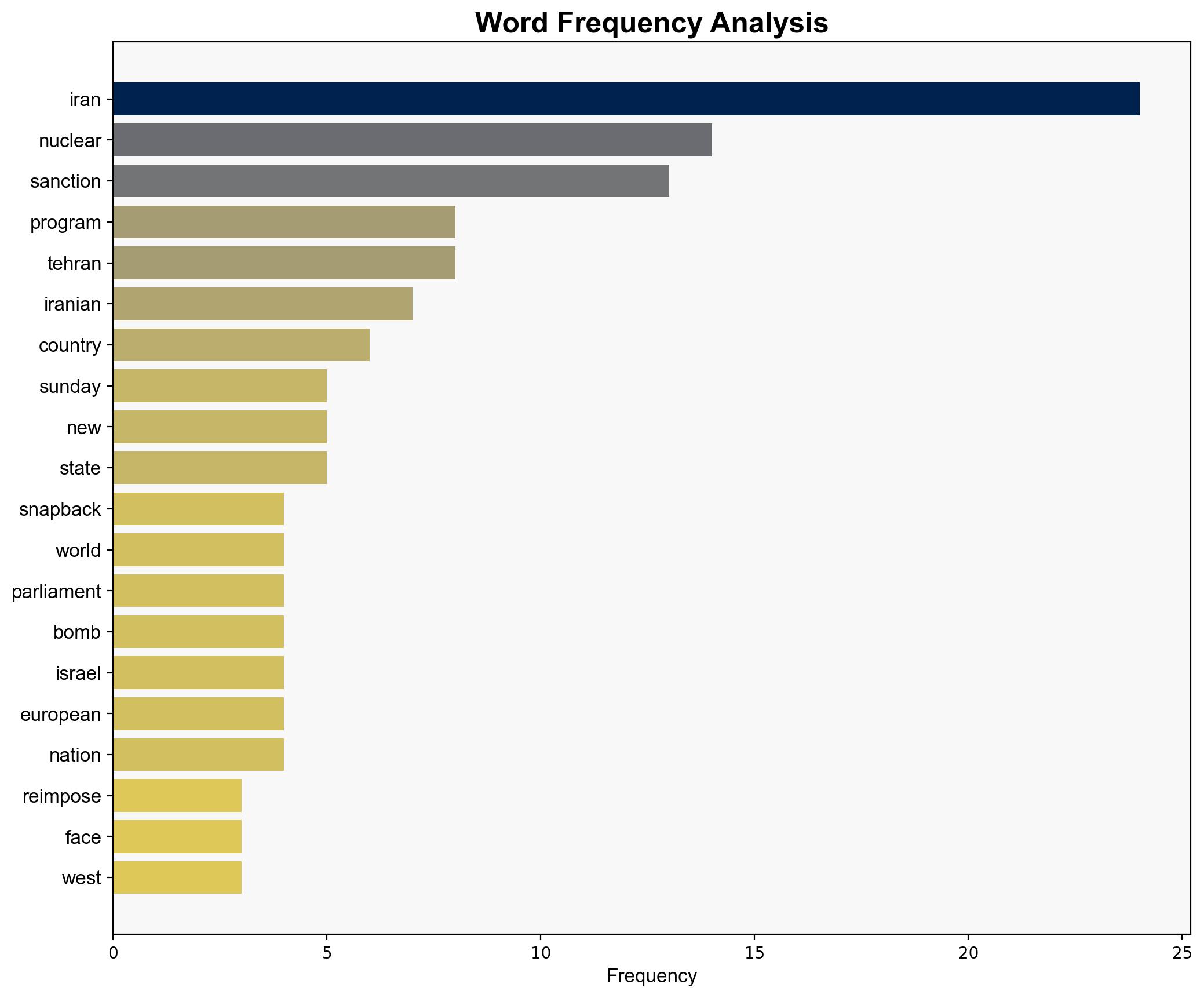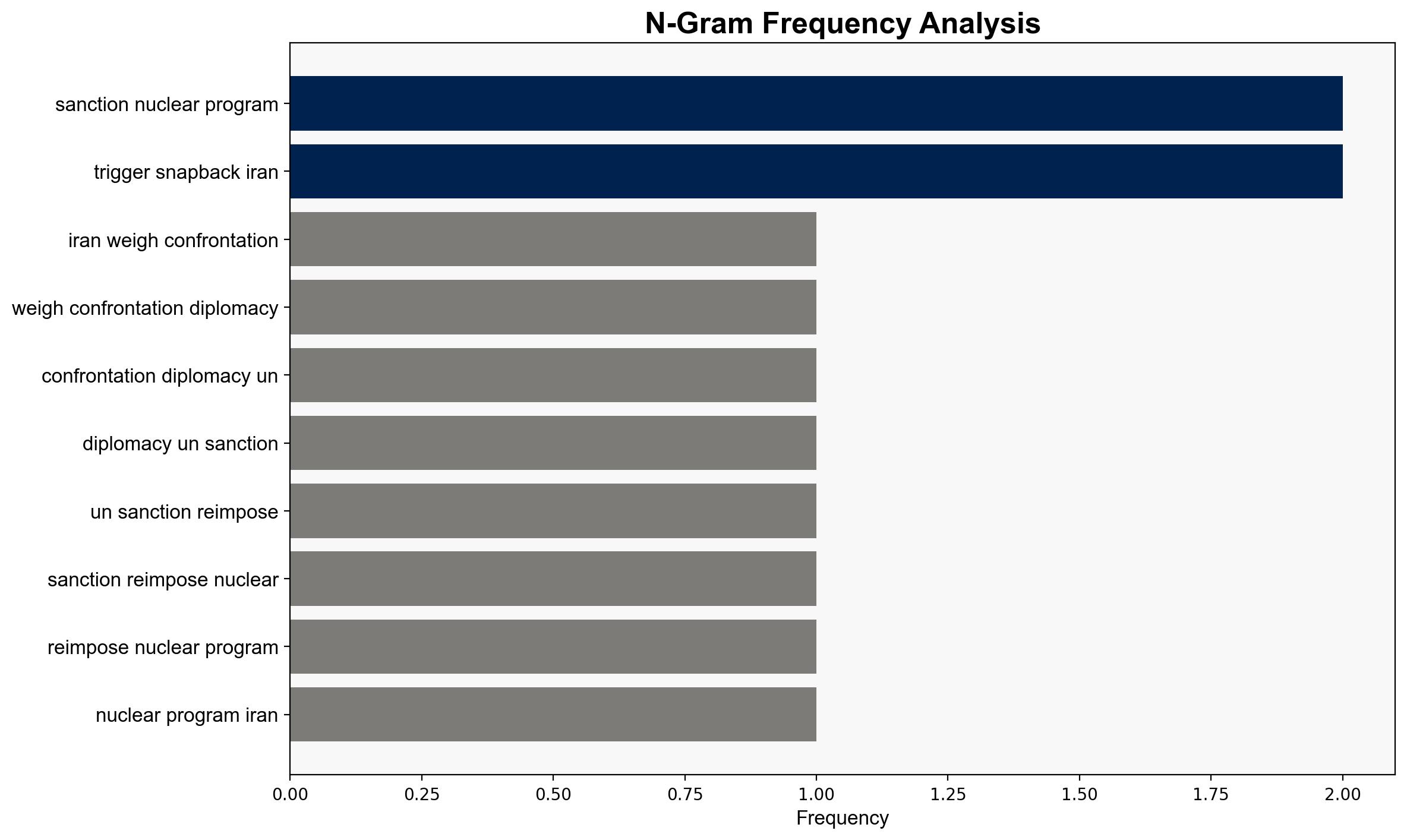Iran weighs how to respond to reimposed UN sanctions over its nuclear program – ABC News
Published on: 2025-09-28
Intelligence Report: Iran weighs how to respond to reimposed UN sanctions over its nuclear program – ABC News
1. BLUF (Bottom Line Up Front)
Iran is at a strategic crossroads in responding to reimposed UN sanctions. Two primary hypotheses emerge: Iran may choose confrontation, escalating tensions with the West, or it may pursue diplomatic avenues to alleviate economic pressures. The analysis suggests a higher likelihood of Iran initially opting for a confrontational stance, given historical patterns and current rhetoric, although diplomatic engagement remains a viable path. Confidence level: Moderate. Recommended action: Engage in multilateral diplomatic efforts to offer Iran incentives for compliance, while preparing for potential military escalations.
2. Competing Hypotheses
1. **Confrontation Hypothesis**: Iran will adopt a confrontational approach, potentially withdrawing from the Nuclear Nonproliferation Treaty and accelerating its nuclear program. This is supported by parliamentary discussions on treaty withdrawal and rhetoric from key Iranian figures.
2. **Diplomacy Hypothesis**: Iran will seek diplomatic solutions to ease sanctions, leveraging negotiations at international forums. This is supported by Iran’s historical use of diplomacy to manage international pressure and recent diplomatic engagements.
Using the Analysis of Competing Hypotheses (ACH) method, the confrontation hypothesis is better supported by current evidence, including public statements and legislative actions.
3. Key Assumptions and Red Flags
– **Assumptions**: It is assumed that Iran’s leadership is unified in its approach, which may not reflect internal divisions. The effectiveness of sanctions in influencing Iran’s behavior is also assumed.
– **Red Flags**: Inconsistent messaging from Iranian officials could indicate internal disagreements. The lack of clear international consensus on sanctions enforcement may weaken their impact.
– **Blind Spots**: Potential covert negotiations or backchannel communications are not visible in the current intelligence.
4. Implications and Strategic Risks
– **Escalation Risks**: A confrontational approach could lead to military engagements, particularly with Israel, increasing regional instability.
– **Economic Impact**: Continued sanctions will exacerbate Iran’s economic challenges, potentially leading to domestic unrest.
– **Geopolitical Dynamics**: Iran’s actions could influence global nuclear nonproliferation efforts and impact relations with China and Russia.
5. Recommendations and Outlook
- **Mitigation**: Strengthen diplomatic channels with Iran through intermediaries to offer economic incentives for compliance.
- **Military Preparedness**: Enhance regional defense postures to deter potential Iranian military actions.
- **Scenario Projections**:
– **Best Case**: Iran engages in meaningful negotiations, leading to a reduction in sanctions.
– **Worst Case**: Iran withdraws from the Nuclear Nonproliferation Treaty and accelerates its nuclear program, prompting military conflict.
– **Most Likely**: Iran adopts a mixed approach, using both confrontational rhetoric and diplomatic engagement to maximize leverage.
6. Key Individuals and Entities
– Ayatollah Ali Khamenei
– Mohammad Bagher Qalibaf
– Ismail Kowsari
7. Thematic Tags
national security threats, nuclear proliferation, regional stability, economic sanctions




